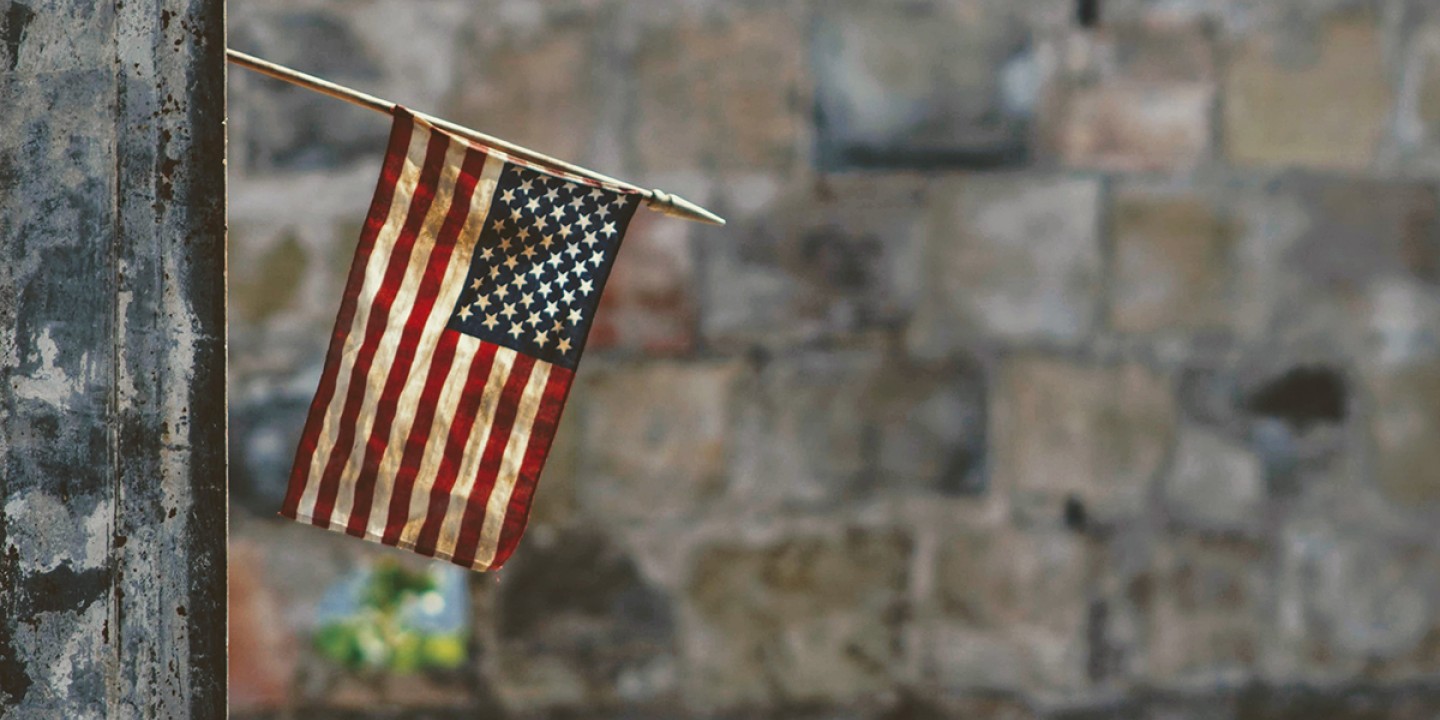The crumbling myth of American exceptionalism
To believe that moral values and virtuous leadership are self-enforcing is to fool ourselves.

Every nation is capable of doing both frightful and beautiful things. The only sense in which America is an outlier is in the scale of its biggest achievements and most egregious failures. We’ve mostly managed to set aside our monumental failures or turn a blind eye to them, thanks to a confident self-understanding known as American exceptionalism.
American exceptionalism has trained us to believe that we’re not just inherently different from other nations, we’re intrinsically better. We’ve been taught that our national uniqueness is full of distinctive attributes, blessed by divine providence, that exist so the world will know what liberty looks like.
Read our latest issue or browse back issues.
The origin of much of this thinking lies with the Puritans, whose expressed intent was to create a New England, a place that would be, in their eyes, exceptional. “We shall be as a city upon a hill,” John Winthrop preached in 1630. “The eyes of all people are upon us.” Winthrop was determined to persuade the settlers that they were capable of being a moral example to the world through their charity, their bonds of love, and their prioritization of justice and mercy. America was a set of ideas long before it was a nation.
It’s a beautiful notion, the suggestion that a country might be organized around something other than tribe or nationality. But Winthrop and other early leaders underestimated the hubris at play. Plenty of Americans today are turned off by a swagger that justifies too much, admits no wrong, and ignores the fact that only certain types of people could ever live freely in that city upon a hill. To skeptics of the exceptionalism doctrine, any glamorizing of war, excusing of corruption, or parading of America’s alleged flawlessness is deeply troubling.
The special God-given role that America has long assumed as part of its exceptionalism has also fostered a near-sacred devotion to the US Constitution. A measure of such devotion is vital to the republic’s strength. Yet it often translates into overconfidence in the sturdiness of our democratic institutions. Although champions of the exceptionalism doctrine tend to assume that bad things only afflict other governments, in fact our institutions face constant internal and external threat. To believe that moral values and virtuous leadership are self-enforcing is to fool ourselves. To suppose that malignant narcissism is harmless, that authoritarian behavior is tolerable, or that cruel nationalism is somehow congruent with our founding principles only contributes to national shame and global humiliation.
When an armed mob of Americans overtook the US Capitol last month in a brutish attempt to subvert democracy, confidence in American exceptionalism was rightfully shaken. The myth that our national uniqueness spares our body politic from disfigurement came undone. For years leading up to that chaotic day, virtuous leadership was in short supply. Now we’re forced to reckon collectively with how the misuse of Christianity and the abuse of the American flag can easily legitimate such evil.
Moral values and national virtues are not self-enforcing. They require people willing to stand up for them, a citizenry convinced that integrity, honesty, and civility are essential to American life. During the Civil War, Secretary of State William Seward was fond of saying, “There was always just enough virtue in this republic to save it; sometimes none to spare.” We’ve just learned what “none to spare” looks like—and seen that American exceptionalism remains more aspiration than reality.
A version of this article appears in the print edition under the title “No virtue to spare.”







